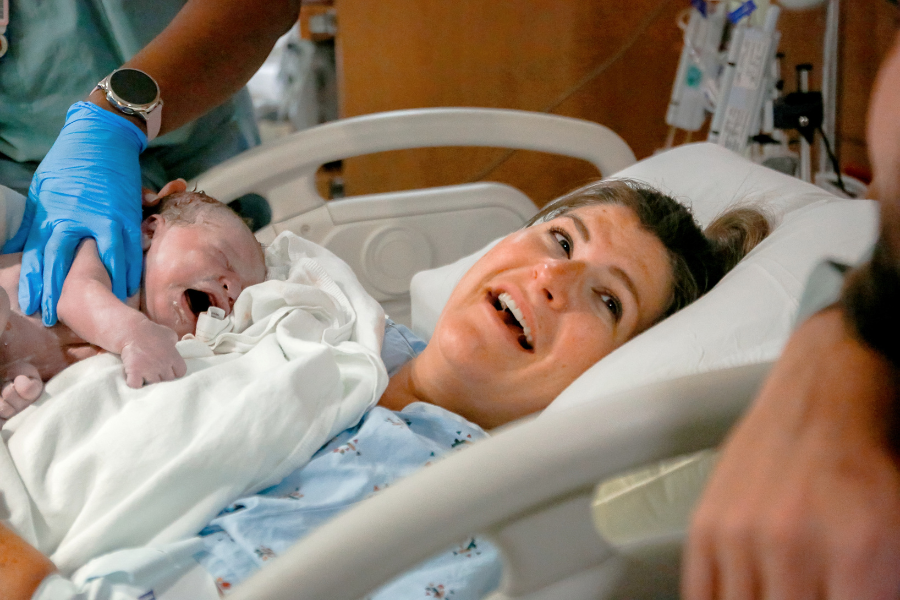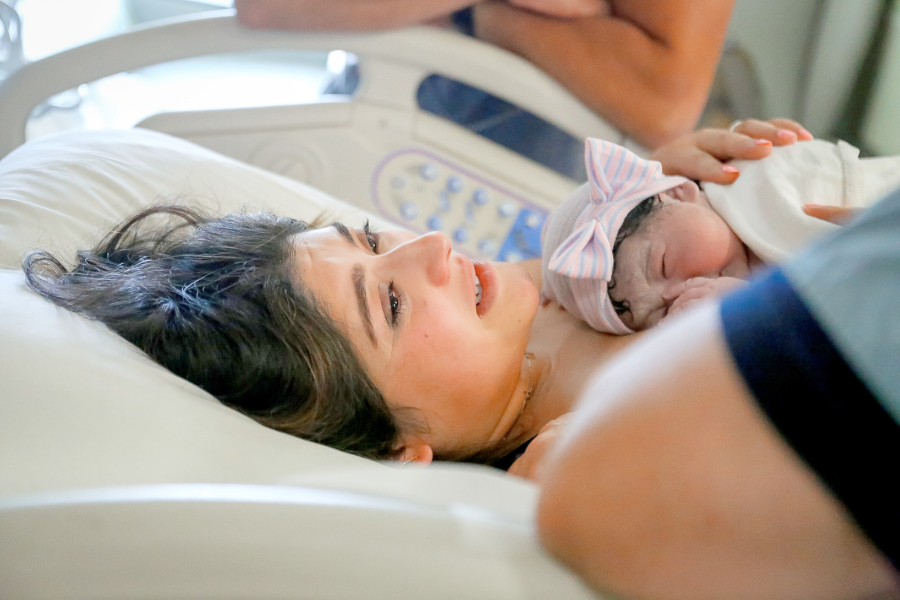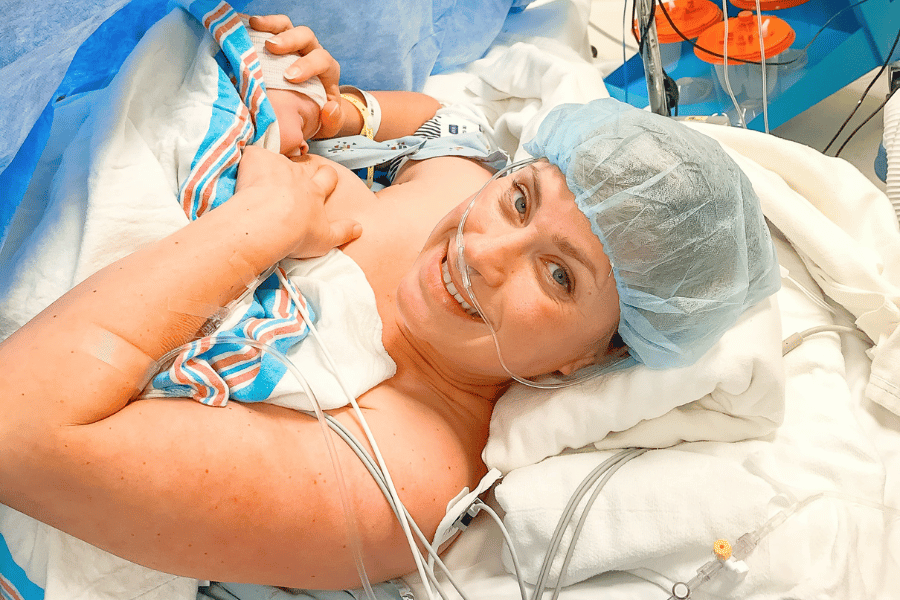Want to feel confident and empowered during your birth? Building the right support team is key! But with so many options, it can be confusing to know where to start. Let’s talk about doulas vs. midwives and break down their roles so you can choose the best support for your unique needs.
This information is relevant to hospital systems in the U.S. My understanding is that midwives that practice outside of the U.S. might have different job descriptions and roles.
Follow @mommy.labornurse on Instagram to join our community of over 650k for education, tips, and solidarity on all things pregnancy, birth, and postpartum!
What is a Doula?
Think of a doula as your dedicated labor coach and cheerleader. They provide continuous emotional, physical, and informational support throughout your pregnancy, labor, and postpartum period.
They don’t provide medical care, but they’re experts in comfort measures, advocacy, and helping you achieve your desired birth experience.
Roles of a Doula
- Emotional Support: Offering encouragement, reassurance, and a calming presence during labor
- Physical Comfort: Providing massage, suggesting positions, and helping you find pain relief techniques
- Advocacy: Helping you understand your options and communicate your wishes to your medical team
- Partner Support: Guiding your partner in how to best support you during labor
- Postpartum Help: Assisting with breastfeeding, newborn care, and emotional support in those early days
What is a Midwife?
A midwife is a trained healthcare professional who provides comprehensive care throughout your pregnancy, labor, and postpartum period. They offer a more holistic and personalized approach to care, emphasizing natural childbirth and minimizing interventions when possible.
Roles of a midwife
- Prenatal Care: Regular checkups, education, and guidance throughout your pregnancy
- Labor and Delivery: Monitoring your progress, offering pain management options, and assisting with the delivery of your baby
- Postpartum Care: Supporting breastfeeding, providing newborn care education, and monitoring your physical and emotional recovery
Doula vs. Midwife: Key Differences
When it comes to doula vs. midwife, the biggest difference between is that midwives can perform medical tasks, doulas cannot. Midwives can do cervical checks, perform vital signs, intervene if baby is in distress, and deliver babies!
Doulas provide amazing labor support and are labor natural pain management “experts” if you will, but they do not have medical training in the event of something going wrong or red flags arising.
In other words:
- It is not advised (or safe) to give birth with just a doula even if you are having a home birth
- While it is okay (in low-risk pregnancies) to deliver with only a midwife (especially because they usually practice alongside OBs who can step in during emergencies requiring surgery)
Now you know, doula vs. midwife, how they differ and how each can play a significant role in your labor and birth!
Doula, Midwife, Labor Nurse – What’s the Difference?
| Feature | Doula | Midwife | Labor Nurse |
| Training | Specialized training in labor support | Registered nurse with advanced midwifery training | Registered nurse specializing in labor and delivery |
| Medical Care | Emotional, physical, and informational support | Provides full-scope medical care for low-risk pregnancies | Provides medical care and assists with procedures |
| Focus | Does not provide medical care | Holistic care throughout pregnancy, labor, and postpartum | Medical care and monitoring during labor in a hospital setting |
| Setting | Home, birth center, or hospital | Home, birth center, or hospital | Hospital |
How is a Midwife different from an Obstetrician?
An obstetrician is a medical doctor who specializes in the management of pregnancy, labor, and birth. They have specialized education in surgical care, focusing on the detection and management of the female reproductive system if obstetrical or gynecological problems occur.
OBGYNs are required to attend and graduate from medical school, and then complete an additional four years of residency training in obstetrics, gynecology, gynecology oncology, ultrasonography, and preventative care.
Midwives, which we’ve covered, are trained healthcare professionals who provide expert care and support to women throughout their pregnancy, labor, and postpartum journey. They are basically experts in natural childbirth, empowering you to have a safe and fulfilling birth experience. They offer a more personalized and holistic approach to care, focusing on your individual needs and preferences.
If you have a high-risk pregnancy or anticipate complications, it is recommended to choose a practice that has access to obstetricians, perinatologists, and other professionals who are trained to address these complications.
So, now you know!
Doulas and midwives are two totally different people. Both have powerful roles in caring for women, but their responsibilities differ.
If you take anything at all away from this article, one thing to remember is that midwives are medical, doulas are not. With that said, however you go about choosing your birthday team, know that you’re already one step ahead of the game because you’ve learned about some important team member roles.
As I always say, being educated and informed is the best thing you can do for yourself when deciding how you want your birth experience to go!
Happy Laboring! 🙂
Additional MLN Resources:





